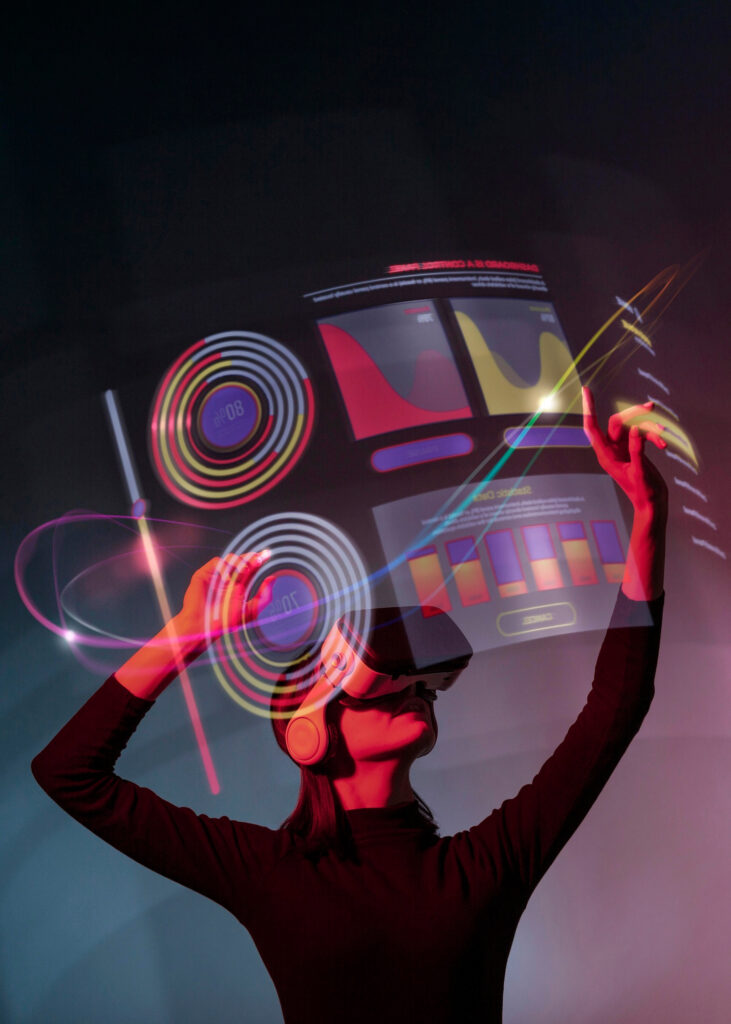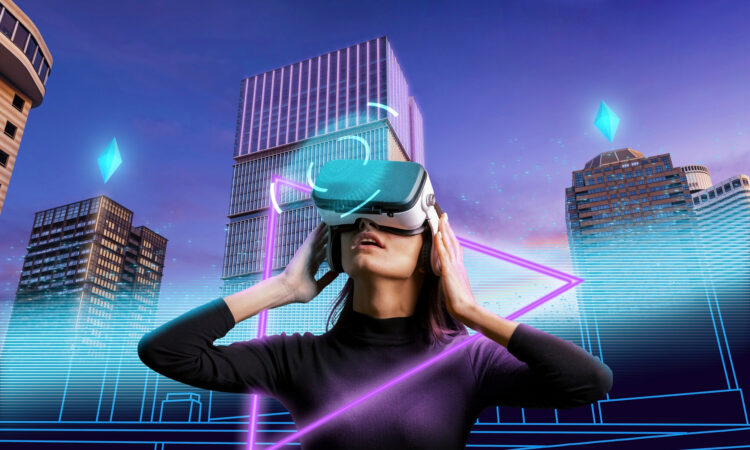Artificial Intelligence is the capability of a machine that imitates or simulates human intelligence and behavior. AI is a revolutionary technology that is changing the dynamics of work and education. We all are familiar with Cortona, Siri, and Alexa. They have helped make our lives easier, and we rely on them to ease our day-to-day tasks and queries. These are classic examples of AI voice recognition systems that mimic human behavior.
Similarly, the metaverse is a revolutionary and innovative technology. Hailed as one of the most prominent technologies that will dominate in the coming years, it is set to change how we learn, work, and interact.

The education metaverse is offering new pedagogical approaches. The metaverse learning space can simulate any real-world scenario to impart 3D immersive education. The metaverse converges many high-end technologies, such as VR, AR, blockchain, 3D, digital twin, IoT, and AI. AI in the metaverse is a core technology that will make the metaverse more intuitive, inclusive, and interactive.
Education Technology is transforming education and helping to bridge the gaps and make it more suited to the current ecosystem.
A Grandview Research report valued the global AI in education market at $1.82 billion in 2021 and estimates it will grow at a CAGR of 36.0% from 2022 to 2030.
What is the Role of AI in Metaverse?
AI has already made major inroads into the education sector and offers many benefits. From individualized learning goals to skill development, it positively impacts learning outcomes. Moreover, by automating many routine administrative tasks, AI also brings more flexibility and efficiency into the administration section.
Let’s take a look at the benefits of deploying AI in the metaverse…
– Intuitive Learning Interfaces
The metaverse can offer highly immersive and experimental learning experiences. However, it can become difficult for learners with special needs or low digital capabilities to access the metaverse and benefit from it. However, deploying AI in the metaverse can augment its inclusivity and allow access to more people. Some of the features that will be helpful in this regard are:
- Image recognition to overcome visual barriers.
- Automatic translation to overcome linguistic barriers.
- Intelligent exoskeletons that can help in digital interactions.
- Brain-computer interfaces.
– Content Relevancy
With the help of AI, curricula can be updated in real-time and ensure that the information is relevant. Digital humans can offer customized virtual learning content to suit the style and needs of every learner and make learning easier.
– Multilingual Inclusivity
The metaverse enables interactions beyond the classroom; users from anywhere in the world can interact in real-time. However, language can impede the free flow of information and communication.
AI in the metaverse can transform any language into a machine-readable format, interpret it, and reproduce it as per the choice of the receiver.
– Avatars and Digital Humans
Users will be able to access experiences through their virtual avatar identities. With the help of AI and facial recognition software, users can create accurate and realistic virtual copies of themselves. Users can also use AI to imitate their mannerisms and nonverbal expressions. Along with avatars, AI helps build digital humans or non-player characters, as in video games. These NPCs or digital humans can be used in educational games to interact with users in the metaverse.
– Smarter Virtual Learning
With AI in the metaverse, students can access and be guided by chatbots on any learning queries in real time. This ensures that learning continuity is maintained irrespective of place or time. AI enables a more innovative and enjoyable virtual learning experience.
Conclusion
In conclusion, integrating AI in the metaverse can potentially revolutionize the future of learning. By leveraging AI technologies such as image recognition, automatic translation, intelligent exoskeletons, and brain-computer interfaces, the metaverse can become more inclusive and accessible to learners with different needs and abilities. AI also enhances content relevancy by updating curricula in real-time and providing personalized virtual learning experiences.
Additionally, AI enables multilingual inclusivity, breaking language barriers and fostering global interactions. Avatars and digital humans powered by AI technology enhance user engagement and interaction within the metaverse. Finally, AI-powered chatbots ensure continuous guidance and support for learners, making virtual learning smarter and more enjoyable. With the rapid growth of AI in the education market, it is evident that AI will continue to play a vital role in shaping the future of learning within the metaverse.






